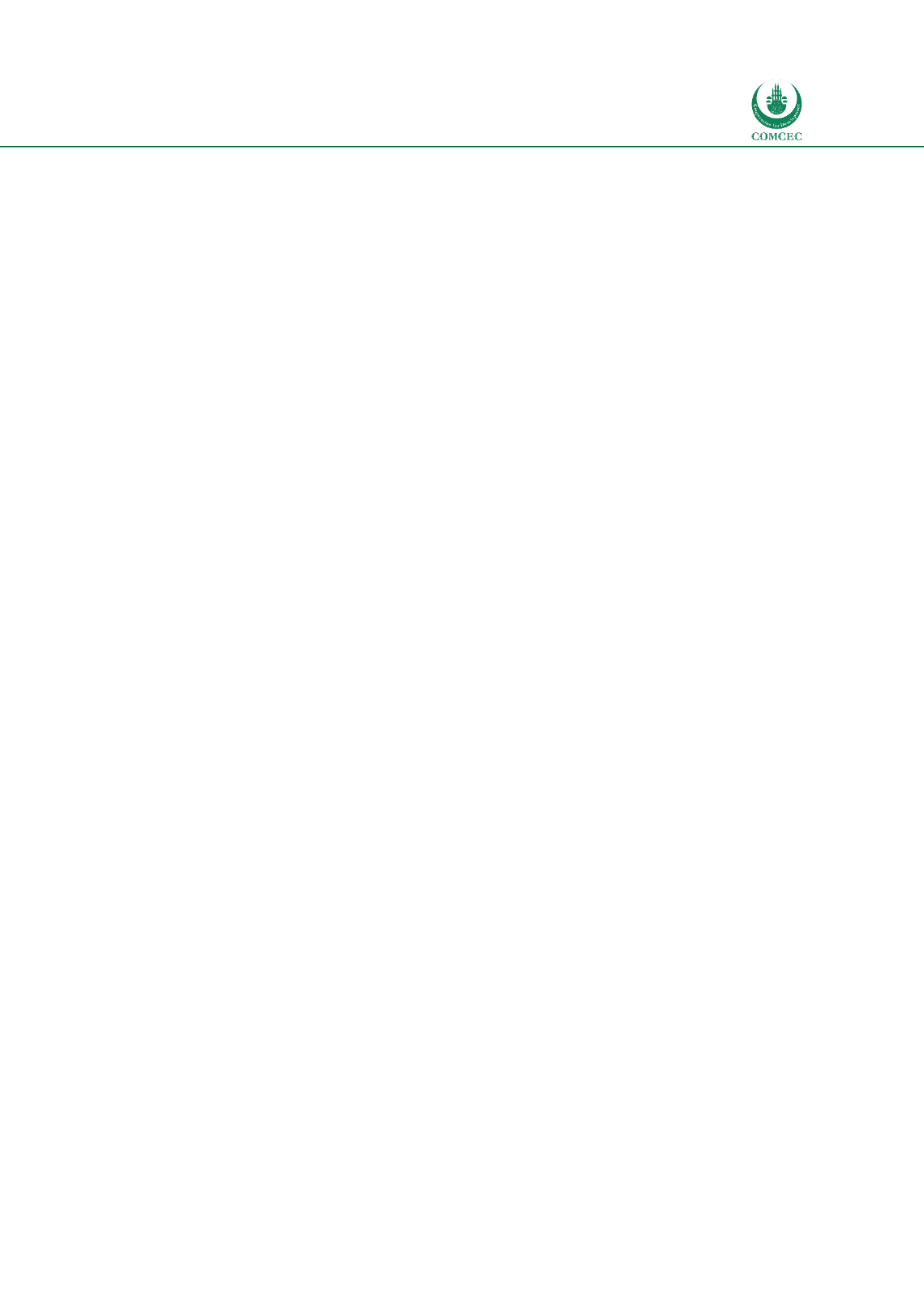

National and Global Islamic Financial Architecture:
Prolems and Possible Solutions for the OIC Member Countries
107
Customers of institutions listed in the capital market and insurance companies can approach
CMA to redress any claims from companies. As a last resort, they can go to commercial courts
which are specialized in this field. While there is no specific department or office dealing with
customer complaints related to Islamic finance specifically, the current laws and institutions
protect their rights also.
While all organizations by law are required to provide adequate information to customers
before selling any goods or services (MOLA, 2014b), and customer rights are protected by
Consumer Protection Law, there are no specific schemes for financial literacy for consumers in
the country. However, almost all government institutions have websites which offer valuable
information for consumers. For example, CMA, the regulator/supervisor of capital market and
insurance companies enhances awareness in matters related to investments, the rights of
investors, insurance for all the segments of the community through organizing conferences,
workshops, and issuing booklets and awareness brochures (CMA, 2015).
Similarly, the Muscat Securities Market (MSM) seeks to encourage savings, disseminate
investment awareness, and protect investors. It offers awareness publications in its website
such as the Investment Book (MSM, 2012a) and useful investor links. In addition, the Central
Bank of Oman (CBO) has uploaded its rules and regulation on its website such as Banking law
and Islamic Banking Regulatory Framework. Also, customers of banks and financial
institutions which are supervised and regulated by CBO can find a copy of CBO circulations in
updated regulations and instructions addressing the above mentioned institutions.
Furthermore, CBO publications such as the yearly report, financial stability report and the Al
Markazi Magazine are available online. The government has also organized and hosted
different conferences and seminars addressing different financial matters.
All Islamic banks and windows have website which offer details about their products and
updated news. Their customers can contact them for more details. For example, the Meethaq
Window offers services for customers to contact Sharia advisers and send their queries
regarding Islamic finance. Furthermore, Bank Alaizz has a knowledge center in its website and
Bank Nizwa has a section called “Know about Islamic Banking” which provides information to
customers about Islamic banking and its history as well as how to differentiate between
Islamic banking and conventional banking. Thus, while there are no specific financial literacy
schemes, different organizations both public and private play active roles in enhancing the
awareness of customers about the finance sector and Islamic finance in particular.
Deposit Insurance
The Bank Deposits Insurance Scheme (BDIS) was established in Oman on 1995 with the goal of
reimbursing depositors in the event of a member bank's failure. The scheme is a part of Central
Bank's safety net that is in place to protect the Sultanate's financial sector by protecting
specific deposits of customers in the event of bank failure. It reimburses the depositors without
any delay until their due is settled by the bank. The aim of the scheme is to enhance confidence
in the banking system and to encourage a savings culture among the public.
All licensed banks accepting public deposits and operating within the country, except Islamic
banks and Islamic windows, are members of the Banking Companies Ordinance (BDIS). BDIS
protection is provided automatically to all depositors free of charge. It reimburses depositors
up to a maximum of OMR 20,000 (USD 51,950). Deposits equal to or below OMR 20,000 (USD
















